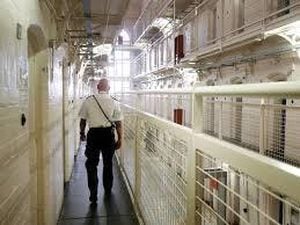Criminals given more help than the victims
Talking Point columnist Sam Billingham asks if we are doing enough to punish criminals

Prison. A building in which people are legally held as a punishment for a crime they have committed or while awaiting trial.
The key word for me is punishment but are we really doing enough to punish perpetrators?
Prisoners who follow rules can earn privileges – surely if they could follow rules, they would not be in prison in the first place.
Rory Stewart MP states we need to begin with basics – surely this must be put in place long before the crime has been committed.
Unfortunately we have no basics in this country any more, there is no respect and there is no discipline in schools whatsoever.
That is a problem right there, surely this is a good turning point to change this?
Education is powerful and could be a prevention to crime – isn’t prevention better than cure?
There are 121 prisons in England and Wales and the Government is going to be investing £10 million pounds into 10 prisons.
Another classic case of more money being given to help perpetrators. What about supporting the victims of crime instead?
Some £10m to glorify prisons into centres of excellence makes it sound like committing a crime is a good thing. No wonder crime is at its highest.
Courses are normally available to help prisoners get new skills, many prisoners get the chance to work while carrying out their sentence and a low-risk prisoner may be allowed to work in the community. All these opportunities are available after committing a crime.
Where on earth is the deterrent to not re-offend again?
A roof over their head, three meals a day, a TV and privileges for committing a crime, yet in schools children are having free meals taken away from them, NHS staff not being paid enough, care homes closing and safe houses under threat to shut, yet we have £10m to plunge into prisons.
With all the money in the world you can’t change a person’s behaviour. If they don’t want to change, they won’t and I think this is key in preventing people from committing a crime. You can give a person everything on a plate, but if they don’t want to change, they won’t.
Even in prisons many prisoners are still committing crimes, with drones carrying drugs into prisons, prison staff and other prisoner being attacked. So I question, are prisons working at all?
Statistics show a third of prisoners re-offending, so will £10m really turn around a prisoner’s life? We need to figure out what negative evens are occurring, look at the complex systems around those problems and identify key points of failure, then deterrence to address that root cause and put things in place to prevent these issues from happening.
It costs £65,000 to imprison a person in this country once police, court costs and all the other steps are taken into account, which is why it’s vital to find a way, sooner rather than later, to prevent and reduce crime.
Sam Billingham is the founder of Black Country charity SODA (Survivors of Domestic Abuse).





